Did you find this article helpful for what you want to achieve, learn, or to expand your possibilities? Share your feelings with our editorial team.


Jun 5, 2023
CAREER & LIFEBuilding a new futureby developing devices for producing hydrogen
Refocusing on one’s future vision makes work more rewarding
By meeting outside of the workplace with ambitious, hard-working associates at DENSO—as well as those who just seem to be fascinating individuals—it’s possible to break down the barriers of formality and talk openly, listening to their heartfelt concerns along with their unfiltered dreams and goals.
In this “Interviews with Employees Who Get Results” series, we talk casually with a wide range of professionals at DENSO to learn what truly drives them in their work, as well as their ambitions and dreams.
For this interview, we talked with Toshihisa Nakajima. He is involved in product planning and control system development for DENSO’s solid oxide electrolysis cell (SOEC) systems, which efficiently produce hydrogen from high temperature steam.
“It was a first challenge for me to be involved in “producing hydrogen”. In other words, it was completely unknown territory for me I had never faced.”
As soon as the interview began, Nakajima told us about his unique career like this. He started to take on the challenge of working in a new and unfamiliar field with the establishment of a new division.
“It was sometimes tough, but I tried to turn my failures and anxiety into something positive.”
“The experience teaches me that, whenever my heart is going to break off, I should remember my original vision and goals, and then I may find how what I’m doing now leads to my goals. That will ensure my efforts are not in vain.”
He sincerely faces what’s right in front of him, but he does not fluctuate between hopes and fears for the results.
He looks ahead of his goals and continues to achieve results one by one.
His strong passion for the work is rooted in an unwavering conviction even in adversity.
When unexpected environment changes and difficulties stand in our way, how can we take a step forward again?
You can find the answers to it in his ways to enjoy his work in various situations. Let’s listen to how he has progressed on his journey.
Contents of this article
Passionately developing hydrogen production equipment

— First of all, please tell me about your current project.
Nakajima: I am involved in a wide range of tasks of SOEC system, from system concept planning through to control system design and manufacturing. I’m not only in charge of the engineering field of the system about how the system actually functions, but also take on the role of a team leader of the system control development overlooking and managing the project.
— Hydrogen is gaining worldwide attention as the key to achieving widespread carbon neutrality. How do you think the SOEC system you are developing will change people’s lives?
Nakajima: Well, when people think about hydrogen, they tend to think it is not closely related to their daily lives. However, in the future, hydrogen may become the most familiar energy source in everything we do. For example, if fuel of thermal power generation or vehicles switches to “Green hydrogen”, it will reduce the environmental load. It may not immediately have a noticeable impact on our daily lives, but it can make society more eco-friendly as a result. With the goal of achieving a more sustainable society, we are working hard to develop SOEC systems.
* Green hydrogen: a type of hydrogen which is produced by electricity from sustainable energy sources, and emits no CO2 in its production process
Challenge to the “hydrogen production” field without any experience
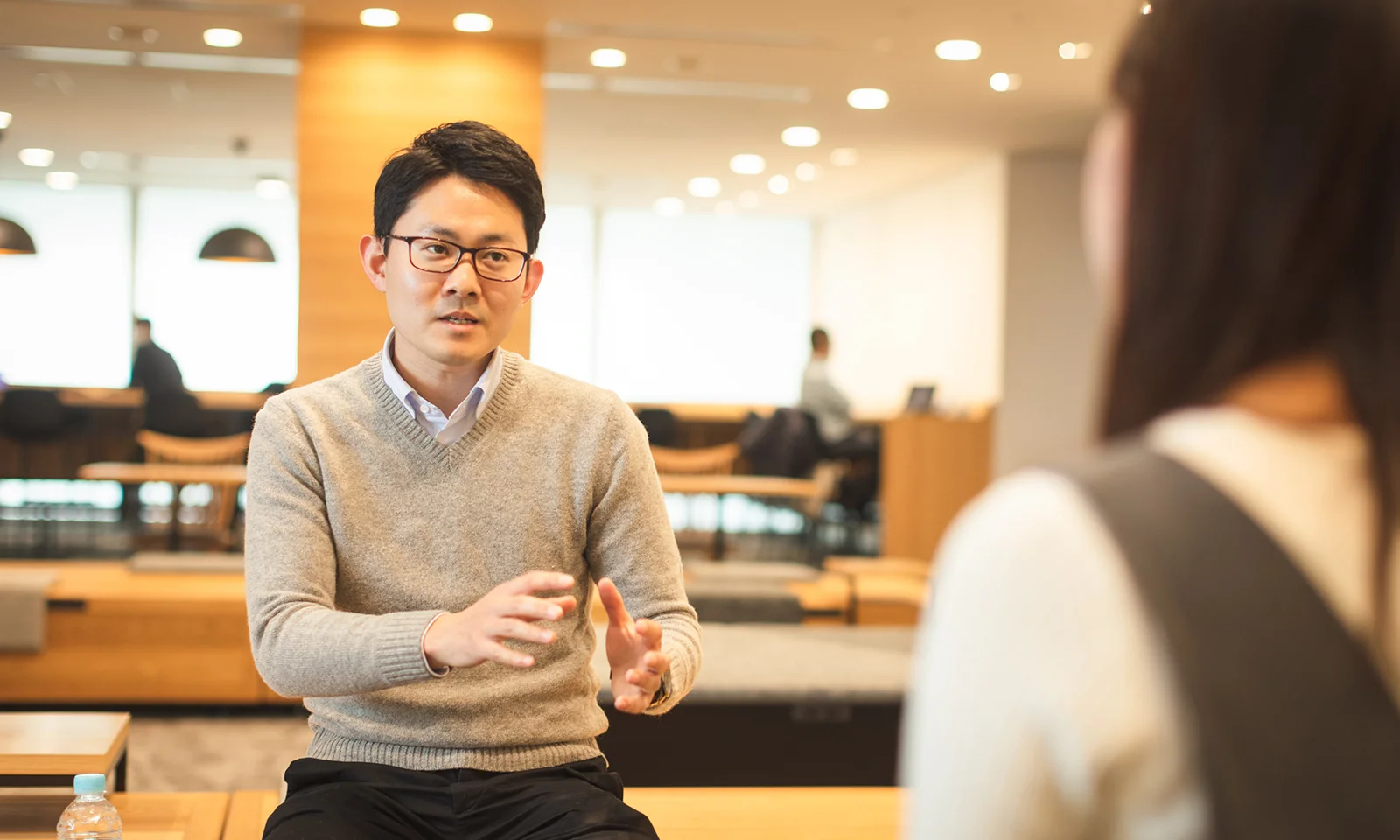
— Did you originally want to work in a job related to hydrogen production?
Nakajima: To tell the truth, I was not willing to be involved in this job from myself. Since I joined DENSO, I had been engaged in developing simulators for vehicle power transmission systems (gear/belt transmission). So, it was unknown territory to challenge myself to “produce hydrogen”, and I had to learn basic knowledge and technologies about the field.
— I hear that you were transferred with the establishment of a new division.
Nakajima: That’s right. My division was at the stage of paving the way to promote our new business with our own hands. Our company had its broad policy of the business, but my division had to create our specific business plans by ourselves. Nobody knew which approach was best, so we just tried out different things for a while.
— That sounds like a tough period in your career. How did you overcome the challenges?
Nakajima: I avoided being distracted by immediate results, always focusing on our goals instead. At the beginning, I was always doing steady work. I constantly thought of our business plans lineup and made prototypes of program to repeatedly calculate our cost estimates.
In our various attempt, I felt like I was going to lose my heart many times, wondering “Is this worth trying?” or “I have not achieved any results, and I do not feel like I’m going forward. Am I doing Okay?”
But we cannot decide whether we are now making wasted effort until we achieve our goals. We may think “We could succeed because we had trouble with our tasks at that time”, and “Doing our tasks that I thought meaningless was the tip for success”.
I could look forward even in adversity and could think what to do at the next step, because I did not see my anxiety but focus on my goal.
Remaining curious and absorbing useful things from all experiences—even failures
— So you changed your way of thinking, which motivated you and made you more positive about your work. It’s impressive that you were able to see things positively and overcome the tough situation. Was there any specific driving force behind it all?
Nakajima: For me, it was my genuine curiosity about many different things, and the fact that I love challenges. Whether at work or in my personal life, I enjoy absorbing new and useful things through my experiences. This drives me in everything I do. Learning the basics of hydrogen and related technologies from the ground up was a big challenge, but I was really interested in the subject, and that motivated me.
— In other words, you enjoy tackling unexpected changes in your work environment?
Nakajima: I do. At the time (of my transfer), I had always wanted to work in a field outside of automobiles, so I could take advantage of the new opportunity presented to me.
— I see.
Nakajima: Even if I make a mistake, I am sure to gain something new from experience, no matter how small. For example, “Even if my efforts didn’t pay off, I found new ways of doing and looking at things better.” “I became able to do something I had not been capable of doing before.” and “I could make clear what I should take care of next time”.
By changing my perspectives in this way, I can be positive about my experiences. As long as I make efforts, I am sure to gain something. By pushing forward through both successes and failures, I can enjoy words of gratitude from customers, and have great moments with my colleagues with high-fives as we celebrate our successes. This is why I continue to pursue personal growth every day. I believe it’s possible to achieve great results by trying to gain something even from bitter experience.
Learning from the past
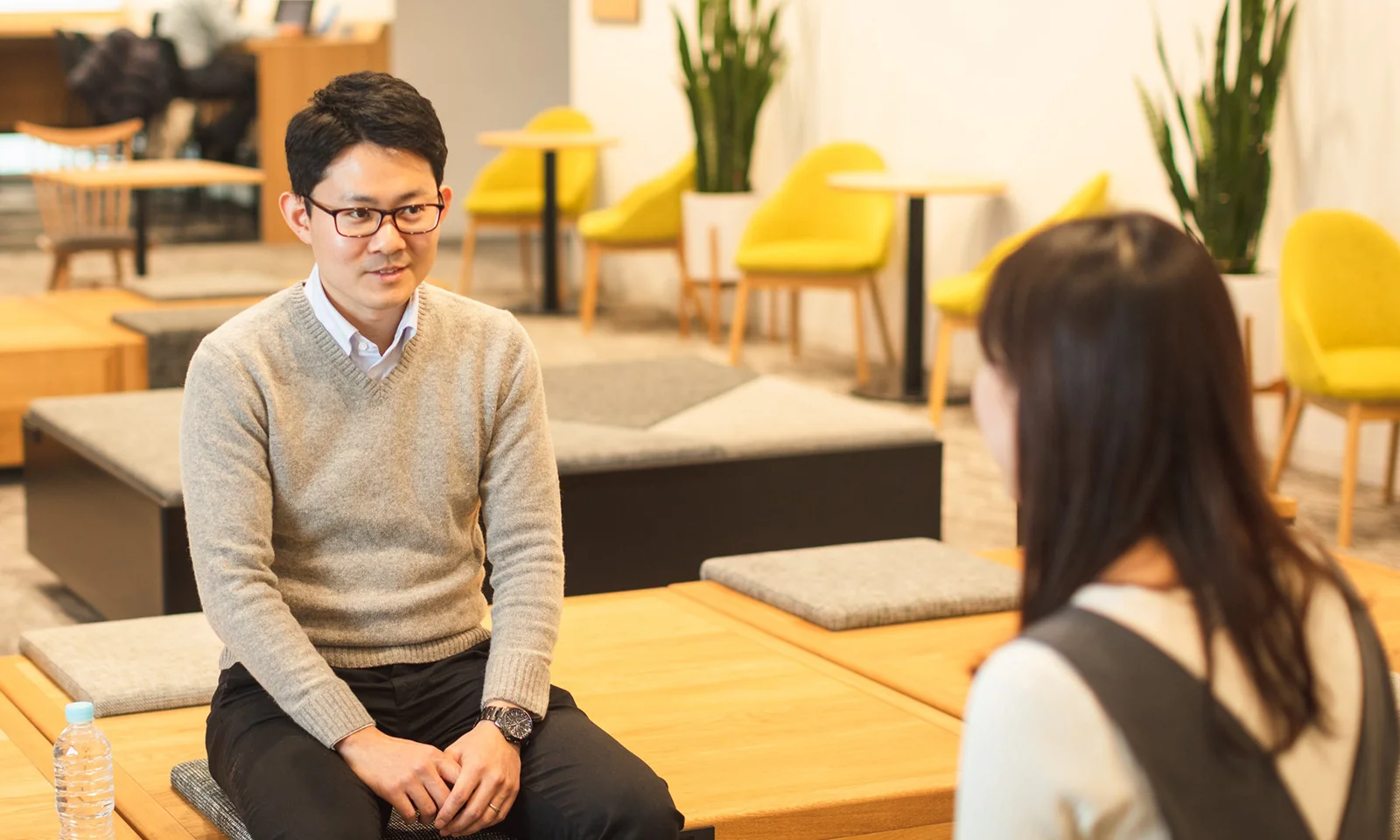
— That’s an inspiring story that tells me a lot about your personal values. Is there any specific approach or philosophy you regularly apply in your work?
Nakajima: No matter which type of process I’m involved in, I always ask myself whether what I’m creating or doing satisfies a customer need. When you are involved in a new business, it is important to overlook the whole business from a different perspective, such as business planning, product development, system control and the like.
What’s important is to fully understand the customer’s needs and offer products that meet them. I would like to keep the perspective in mind that we need to think about why and when our customers need our product of SOEC system, and how they want to use it.
— So, you didn’t focus too strongly on the customer’s perspective in your previous work, but that’s now a major part of your job?
Nakajima: In my previous work I was involved in the work centered on software and engineering drawing, such as R&D and machine simulations and design, and I have ever been refused to make prototype with my drawing by the prototype manufacturing divisions, being said “Do not design what we cannot make”, because I focused on technologies too much when I created drawings. As a result, I had to spend much time to fix them. I’m not perfect even now, and I take trial and error approach in my daily work receiving the questions and feedbacks from my division director whether my designs truly consider our customers’ needs.
— You seem to use failures to improve yourself gradually.
Nakajima: Yes, and that helps me incorporate the customer viewpoint each time and make more meaningful contributions during meetings and discussions. I feel like I’m making real progress.
Pursuing dreams to connect present work with future ambitions
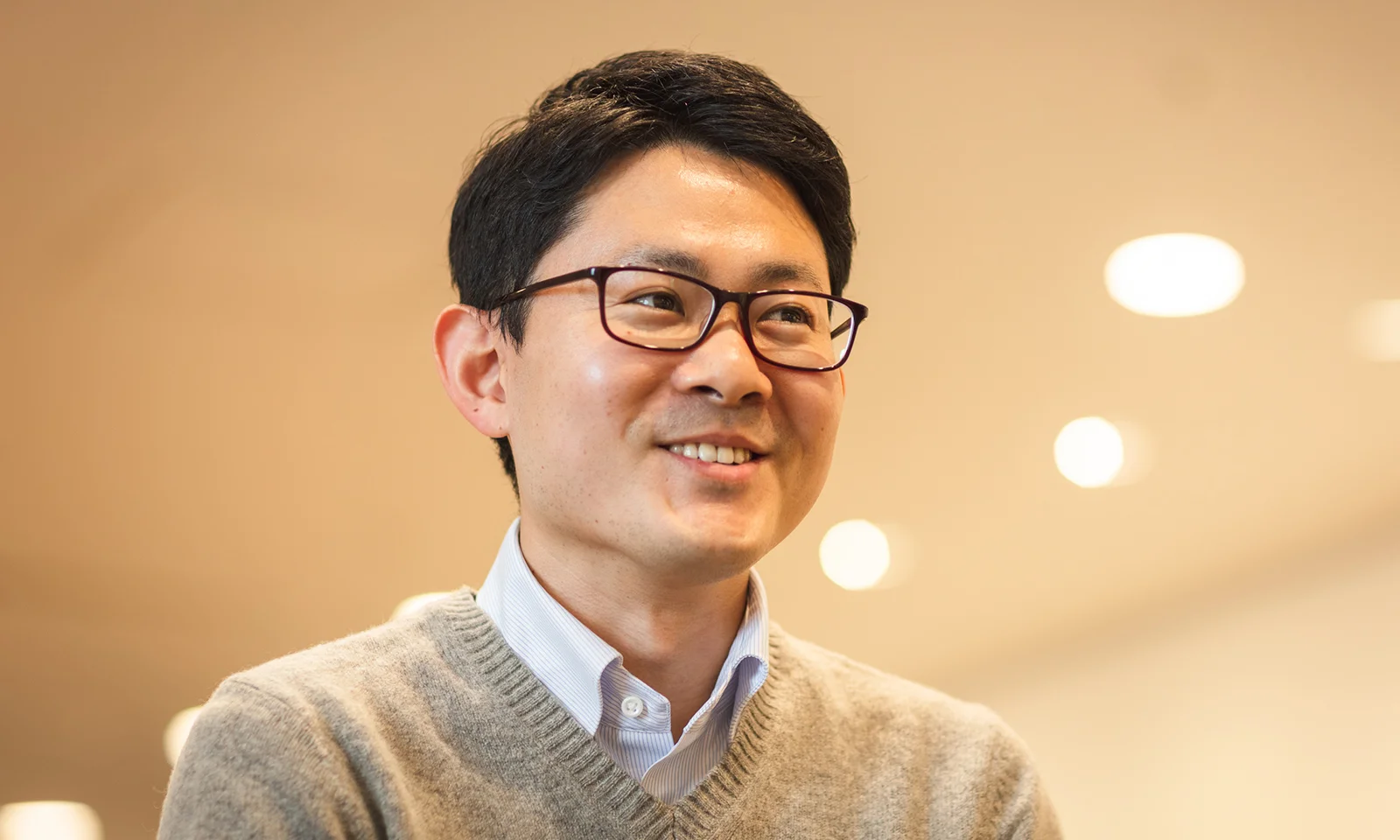
— Regardless of how many times you succeeded or failed, you seem to have learned a lot from your experiences. Lastly, please tell me your personal dreams and ambitions.
Nakajima: As worldwide efforts toward carbon neutrality accelerate, the energy field is changing dramatically. During this transition, I believe that hydrogen may be the key to realizing a paradigm shift. My dream is to help achieve zero carbon emissions around the world and enrich people’s lives by developing our SOEC system and disseminating it throughout society.
— That type of dream can change the world. Your dedication is impressive! On the other hand, some people are assigned to divisions outside their preferred field, or to roles where they cannot pursue their dream. It must be tough for them to set such big goals.
Nakajima: As I had never imagined that I’d work in a job related to hydrogen, I can understand why people might be worried or confused about their new environment or jobs.
The only thing I might suggest is that you should imagine how your current job has something to do with your preferred one.
Even if it seems that your current job has nothing to do with your preferred one, you may find some common points in various aspects, such as technologies, skills, ways of thinking and the like.
In order to keep motivated, I think it is important not to give up because of the difference in fields, but to be always on the lookout and to find the common points in your own way, thinking how your current job can apply to your preferred one.
It will make your job more enjoyable to change your way of thinking, be more positive about things and stay curious, utilizing your current work environment, and the dreams and ambitions you discover along the way will be amazing.
COMMENT
Changing your "Can'ts" into "Cans"
Where Knowledge and People Gather.

